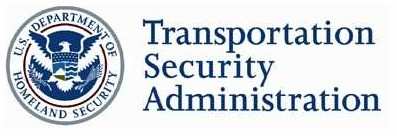Fri, Jun 05, 2009
 NBAA is welcoming the passage of a
Congressional proposal to allow the aviation industry to review and
provide input toward TSA proposals, while bringing consistency to
the use of "security directives" in TSA regulation.
NBAA is welcoming the passage of a
Congressional proposal to allow the aviation industry to review and
provide input toward TSA proposals, while bringing consistency to
the use of "security directives" in TSA regulation.
The proposal was offered as an amendment by Reps. John Mica
(R-7-FL), Sam Graves (R-6-MO), Vernon Ehlers (R-3-MI) and Tom Petri
(R-6-WI) during House floor debate on H.R. 2200, the Transportation
Security Administration Authorization Act.
It requires the TSA to operate within the framework of the
Administrative Procedures Act (APA) when issuing new security
proposals, unless the Agency determines that an imminent threat
requires the Agency to bypass APA with the introduction of a
security directive. NBAA recently sent a joint letter with several
other aviation industry groups in support of the
proposal.
"Security is a top priority for the business aviation community,
and NBAA Members have a long-standing record of effectively
partnering with the government on measures to help ensure the
security of our airports, aircraft, flight crews and passengers,"
said NBAA president and CEO Ed Bolen (pictured below).

"This legislation will allow the TSA to respond to any imminent
threats, while providing the Agency the necessary flexibility to
develop and implement the most effective, tailored and workable
solutions. As a result, industry and government will be able to
strike an appropriate balance between the need to address immediate
threats and allowing for an appropriate public review. We thank
Representative Mica and his colleagues for co-sponsoring this
important and necessary legislation."

NBAA also welcomed two other important provisions in H.R. 2200.
The first creates an Aviation Security Advisory Committee (ASAC)
for aviation stakeholders and a "General Aviation Working Group"
within the ASAC to give the general aviation community a forum to
formulate recommendations on GA security proposals for TSA
consideration. The second provision prohibits TSA from outsourcing
terror-watch list reviews to third parties, as proposed in the
Agency's Large Aircraft Security Program (LASP).
More News
He Attempted To Restart The Engine Three Times. On The Third Restart Attempt, He Noticed That Flames Were Coming Out From The Right Wing Near The Fuel Cap Analysis: The pilot repor>[...]
Make Sure You NEVER Miss A New Story From Aero-News Network Do you ever feel like you never see posts from a certain person or page on Facebook or Instagram? Here’s how you c>[...]
From 2009 (YouTube Edition): Leading Air Show Performers Give Their Best Advice for Newcomers On December 6th through December 9th, the Paris Las Vegas Hotel hosted over 1,500 air >[...]
Aero Linx: NASA ASRS ASRS captures confidential reports, analyzes the resulting aviation safety data, and disseminates vital information to the aviation community. The ASRS is an i>[...]
“For our inaugural Pylon Racing Seminar in Roswell, we were thrilled to certify 60 pilots across our six closed-course pylon race classes. Not only did this year’s PRS >[...]
 NTSB Final Report: Rutan Long-EZ
NTSB Final Report: Rutan Long-EZ ANN FAQ: Turn On Post Notifications
ANN FAQ: Turn On Post Notifications Classic Aero-TV: ICAS Perspectives - Advice for New Air Show Performers
Classic Aero-TV: ICAS Perspectives - Advice for New Air Show Performers ANN's Daily Aero-Linx (06.28.25)
ANN's Daily Aero-Linx (06.28.25) Aero-News: Quote of the Day (06.28.25)
Aero-News: Quote of the Day (06.28.25)





